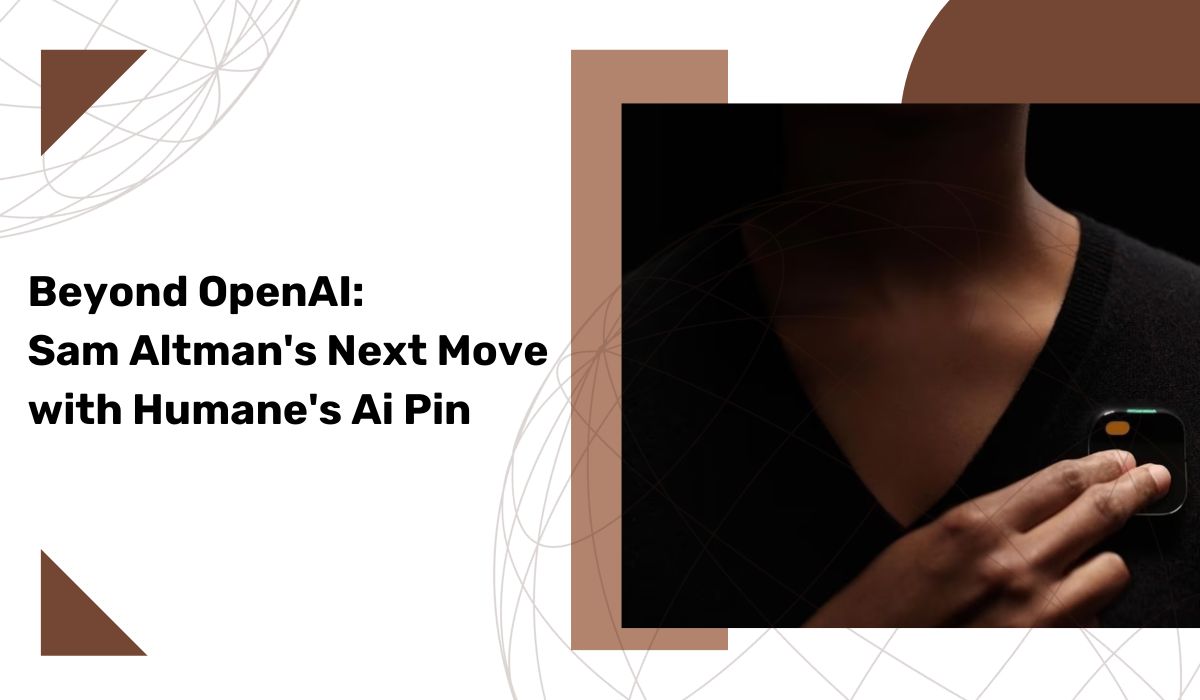
Humane, a startup backed by entrepreneur Sam Altman, has unveiled its inaugural product, the Ai Pin, on November 10. Departing from conventional consumer tech norms, the Ai Pin pioneers a displayless design, leveraging AI technology for streamlined user interaction. The device utilizes voice and laser ink technology to efficiently communicate information through an integrated AI chatbot, facilitating rapid access to information and encouraging users to stay present in the moment.In a recent announcement via its official X account, Humane revealed that the eagerly anticipated Ai Pin is scheduled to commence shipping in March 2024. Expressing excitement, the company stated, "We are thrilled to announce that Ai Pin will start shipping in March 2024. All of us here at Humane can't wait for you to experience your Ai Pin, the world's first wearable computer powered by Ai. We're incredibly grateful for the enthusiasm and support, especially from our earliest supporters."Humane has disclosed its shipping strategy, emphasizing priority orders for customers.
The dispatch sequence will be determined by the chronological order of purchase, ensuring that early supporters receive their Ai Pin units first.For prospective buyers, the Ai Pin, bundled with a battery booster, is priced at $699. Additionally, a monthly Humane subscription priced at $24 offers cellular connectivity, a dedicated number, and data coverage. Notably, this service is exclusively available through T-Mobile in the United States.Under the hood, the Ai Pin operates with an undisclosed Snapdragon chipset and an AI engine presumed to be GPT-4. The company acknowledges collaborations with OpenAI and Microsoft, asserting that these partnerships provide Ai Pin with access to powerful AI models globally, setting the stage for incorporating new capabilities as technology evolves. Sam Altman's substantial ownership stake of 14 percent in OpenAI underlines the significance of this partnership.
Equipped with sensors, a camera, speaker, microphone, and a laser ink display, the Ai Pin serves as a quasi-smartphone with privacy at its core. Despite including an outward-facing camera, the device remains inactive and non-listening unless explicitly activated. Notably, it does not respond to wake words, prioritizing user privacy.The Ai Pin's standout features include the ability to compose and send messages and emails without manual typing. Users can effortlessly interact with the device through voice commands, prompting it to generate draft suggestions on its laser ink screen. The display, conveniently viewed by extending one's palm, allows users to modify drafts with additional prompts if needed, showcasing the device's intuitive functionality and user-centric design.